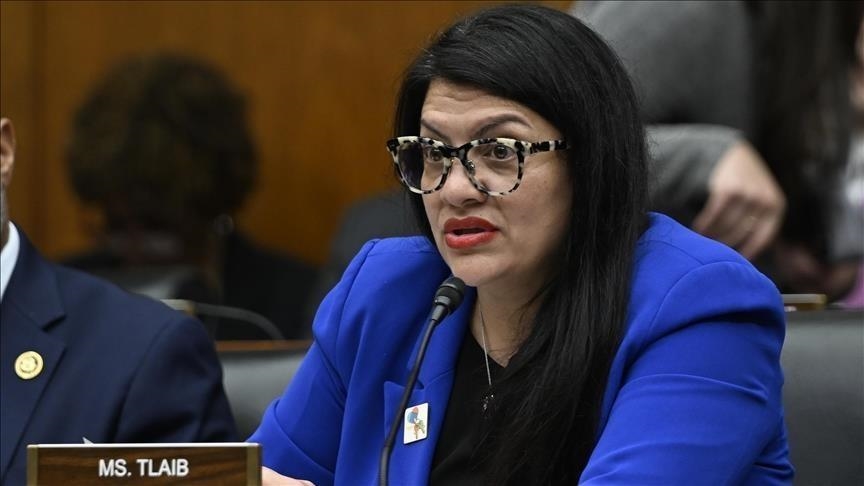WASHINGTON: US Congresswoman Rashida Tlaib on Tuesday denounced President Donald Trump’s recent controversial proposal for Palestinians to leave the Gaza Strip, saying: “Palestinians aren’t going anywhere.”
“This president can only spew this fanatical bulls because of bipartisan support in Congress for funding genocide and ethnic cleansing. It’s time for my two-state solution colleagues to speak up,” Tlaib, the first Palestinian American woman to serve in Congress, wrote on X.
Earlier, rebuffing Trump’s comments on Gaza during a Monday White House meeting with Israeli Prime Minister Benjamin Netanyahu, Tlaib said the president is “openly calling for ethnic cleansing while sitting next to a genocidal war criminal.”
“He’s perfectly fine cutting off working Americans from federal funds while the funding to the Israeli government continues flowing,” she added, referring to Trump’s federal funding freeze ordered last week.
During his meeting with Netanyahu, Trump suggested that Jordan and Egypt should take in Palestinians from Gaza, calling the enclave a demolition site and uninhabitable.
He later doubled down on his proposal at a press conference with Netanyahu, saying the US “will take over the Gaza Strip, and we will do a job with it too.”
“We’ll own it and be responsible for dismantling all of the dangerous unexploded bombs and other weapons on the site, level the site and get rid of the destroyed buildings, level it out, (and) create an economic development that will supply unlimited numbers of jobs and housing for the people of the area,” Trump said.
Jordan, Egypt, and other regional players strongly rejected the proposal, while both the Palestinian Authority and Hamas condemned Trump’s remarks and rejected any attempt to displace Palestinians from their homeland.
Hamas called Trump’s proposal “a recipe for generating chaos and tension,” adding: “Our people in the Gaza Strip will not allow these plans to pass.”
Forcibly displacing a population without justification under international law constitutes a war crime under the Rome Statute of the International Criminal Court.


